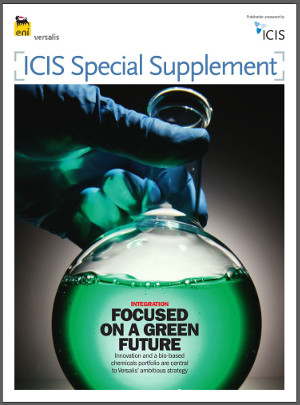Analysis of steam and water losses in the Total Site (TS) utility system is critical in process industry. Makeup water plays an important role in maintaining the water balance in the steam and condensate systems. Total Site Heat Integration (TSHI) offers a solution to increase energy savings as well as energy efficiency and consequently, to promote sustainability. However, so far most studies on TSHI have not considered the water sensible heat in TS targeting; e.g. for Boiler Feed Water (BFW) preheating and steam superheating during steam generation.
This article describes the key challenges and opportunities in modeling and optimization of biomass-to-bioenergy supply chains. It reviews the major energy pathways from terrestrial and aquatic biomass to bioenergy/biofuel products as well as power and heat with an emphasis on "drop-in" liquid hydrocarbon fuels. Key components of the bioenergy supply chains are then presented, along with a comprehensive overview and classification of the existing contributions on biofuel/bioenergy supply chain optimization.
Italy's leading petrochemical producer, Versalis has taken a fundamental shift in its strategy and direction, to renew its focus on innovation and green chemistry, providing opportunities for growth. This is the ICIS/Versalis supplement about green and bio-based chemicals and sustainabliity with videos embedded. Green chemistry fits in with SDG 9 Industry Innovation and SDG 7 Affordable Clean Energy.
Vaccine "hesitancy" is an emerging term in the literature and discourse on vaccine decision-making and determinants of vaccine acceptance.
This paper defines the concept of 4th Generation District Heating (4GDH) including the relations to District Cooling and the concepts of smart energy and smart thermal grids. The motive is to identify the future challenges of reaching a future renewable non-fossil heat supply as part of the implementation of overall sustainable energy systems.
Elsevier,
Improving Library Services to People with Disabilities, Chandos Information Professional Series, 2007, Pages 65-86
To maximize potential, people must have lifelong access to the information and services offered through books and libraries. Whether to address concerns of an ageing population or to enable all citizens to contribute fully through meaningful education and work opportunities, more emphasis is being given to promoting library services to people who have disabilities. This content addresses SDGs 4 and 10 by focusing on serving adults with disabilities in an international setting allowing librarians, policy makers and constituents to understand the importance of serving all potential patrons.
This chapter advances SDG 6 by explaining proactive management of drinking-water safety and quality.
This chapter advances SDG 6 by reviewing the evidence on health and nonhealth benefits of water and sanitation investments that are common in developing countries. It further explores evidence on valuation for these interventions and discusses the implications of the evidence on valuation for government policy to support improvements in this sector.
This chapter advances SDG 6 by explaining water pollution from an environmental, health and ecosystem perspective.
SDG 3 (good health and well-being), SDG 10 (reduced inequalities) and SDG 16 (peace, justice and strong institutions) are all directly relevant to this research. This report investigates the health consequences of rising anti-gay laws and homophobia in seemingly liberal nations.

